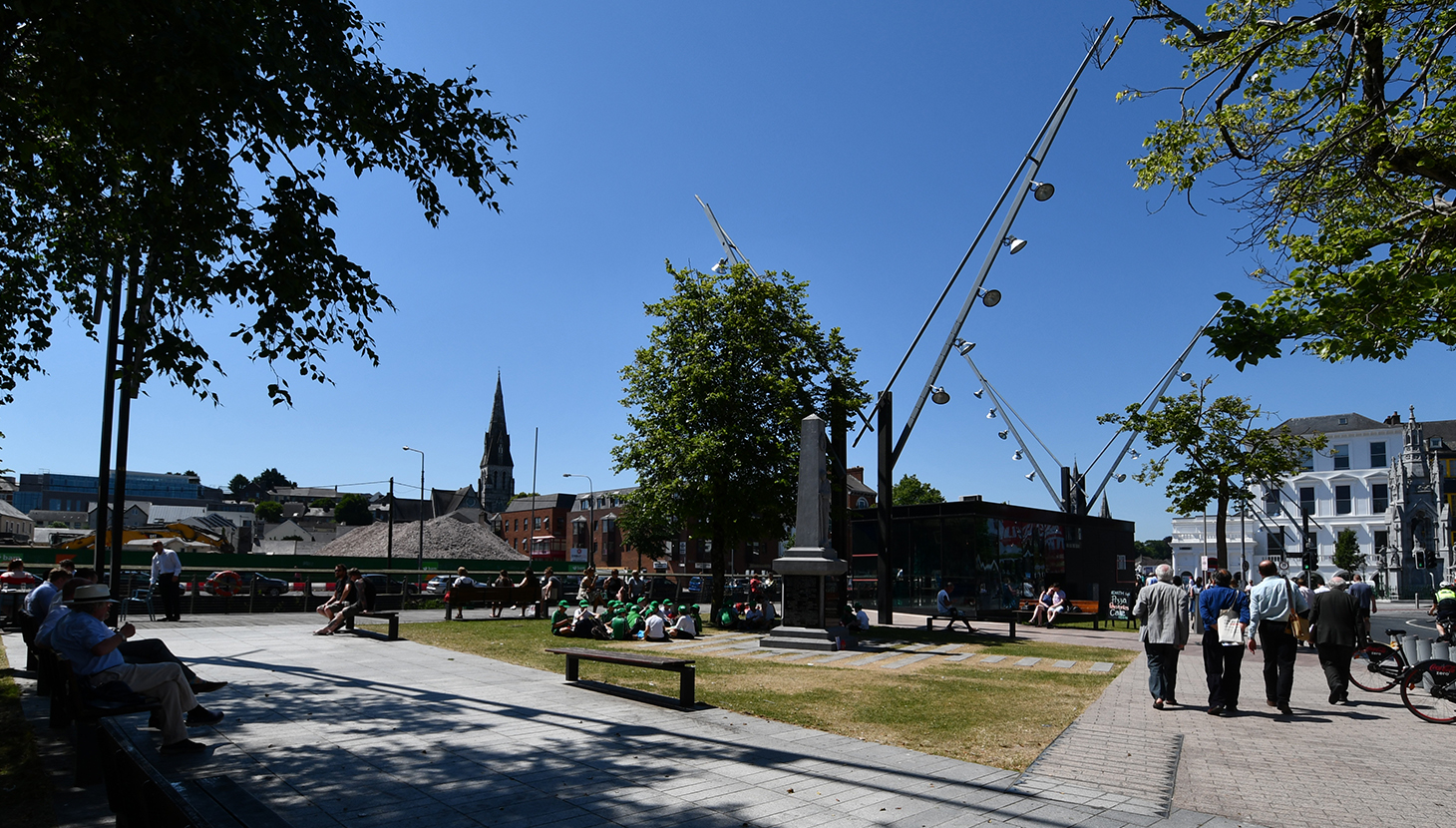
Following a successful Congress in Cork, our chair, David Rudlin AoU and fellow directors Jas Atwal AoU, Kevin Murray AoU and Tony Reddy AoU returned to the city in October, to share feedback and some thoughts on the way forward for Cork.
Three key sessions were held with:
- The chief executive and senior management team at Cork City Council
- CORE – a city centre partnership group, that includes local businesses, the Chamber of Commerce, Cork Business Association, city councillors and officers, and many of the sponsors, supporters and partners at Congress, including BAM Ireland, Arup, Scott Tallon Walker, Crawford Art Gallery, Nano Nagle Place and the River Lee Hotel
- The wider public, including residents and members of community and civic groups
The format of the sessions was a short presentation by the AoU directors, followed by a facilitated discussion. The directors relayed some of the many accolades received from Congress speakers, guests and delegates, such as:
“Cork seemed such a youthful exciting city, which I had not expected. The level of understanding of its potential gained from the event was very strong. The new thinking on streets and creative regeneration from speakers was inspirational”
“Cork is at a turning point, they have hopefully learned from past mistakes and how to go about tackling their redevelopment opportunities. It’s not just about good buildings and places – the positivity of the people who live there make a big impact”
“While each place is individual, there are key concepts to follow for successful urban environments and the communities in which they are created/developed”
Key themes we took from Congress to feed back to Cork:
- Major future urban growth needs to be planned to accommodate heritage and distinctive place identity/design and address implications of climate change
- An outward-looking, international perspective needs to be complimented by Cork-specific identity, culture and ‘feel’ – keeping the place ‘special’
- Demographic/development growth should not be in form of massive suburban sprawl – needs urbanistic (European scale) focus and transit-based concentration and connections
- Economic growth is a necessary key driver, but the physical and social effects/benefits need to be balanced whereby housing and facilities are affordable and accessible for all
- Vehicle dominated traffic and air quality are huge risk areas – so need proactive strategies for improvement from outset – with change of priorities focusing on quality of life for all and judicious ‘placemaking’ infrastructure investment
- Broad social and cultural inclusion is needed by different mechanisms in the discourse about vision, direction and then also decision-making around detailed plans for actual change
- An enlightened, co-production form of leadership is required across politics and the many communities of interest – must be inclusive, inter-generational and cross-cultural
- Benchmarking success against key milestones and comparator places is a useful way to raise aspirations and track progress against vision
- Lots of small things done well – can have a massive cumulative impact
By implication, the old ways of doing things will not suffice in addressing the new conditions for Cork city and its hinterland; a new culture and way of thinking and working together is needed.
There was a great turnout at the sessions and much support and aspiration to achieve these step-changes to improve Cork for all.
Here’s to the Academy supporting Cork in coming years and supporting its progress.